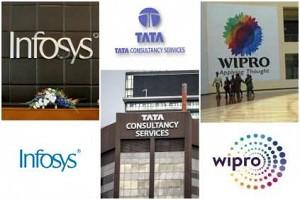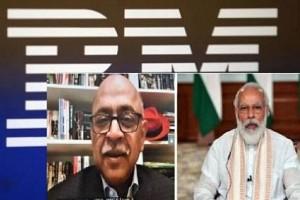IT Companies are not Happy with H-1B Visa Ban, Despite Visa Independence? Here's Why
Home > News Shots > Business newsThe first quarter results of the top four IT companies followed the same narrative when they were questioned about the issue of H-1B Visa Ban done by the Trump administration.

On June 22, the proclamation signed by the US administration stopped non- immigrant visas such as H-1B, L-1 and J-1 till December 2020. The possibility of extending beyond December also pertains if the situation continues to be brim.
Milind Lakkad, Global Head - Human Resources, TCS, described the move as, “Unfortunate.” So, did Wipro’s Rishad Premji during the recent annual general meeting. Pravin Rao, COO - Infosys and HCL Tech CFO Prateek Agarawl, too, noted that the move was unnecessary.
All the companies clarified that they are not looking at the short- term impact but localisation is enabling them to reduce their dependency.
According to data released by US Citizenship and Immigration Services report reveal that H-1B visa requested by and issued for four firms have reduced more than 50 per cent since FY17. However, these firms have also increased their investment on talent overseas. These four firms have hired more than 60 percent of local employees from the US.
Delivering projects or shifting resourced based on clients in the US is not likely to be affected. However, the uncertainties around student visas and the changes made to the optional practical training regime could impact the talent landscape at the US in the longer run.
Although the dependency of Indian firms on the US has come down, Indian IT firms continue to be one of the largest beneficiaries of the H-1B visa.
Reportedly, out of the 85,000 H-1B visas issued every year, almost 20,000 are set aside for those who are completing higher education in the US. Even among the other 65,000 employees who have completed masters in the US get to participate which increases the possibility of getting selected for the ‘H-1B Lottery’.
Majority of the graduates, especially in Science, Technology, Engineering and Mathematics (STEM) discipline, get temporary employment in tech firms through the OPT programme in the US. Most of the students in this stream are international students and a significant number consist of Indian students. Almost 2.5 lakh students are pursuing higher education in the US.
If US government plans to bring in further changes in the OPT regime, foreign students’ interest towards pursuing higher education is the US is likely to reduce. It will impact IT companies as well as technology development in the US.
This is one of the major reasons why the student programmes or the OPT regime for that matter is important for tech and IT companies. Us continues to account for around 60 percent of the revenue for IT Companies hence hiring STEM talents in the US is critical for IT Firms.
Will this continue in the longer run?
Most executives denied the possibility of the move being continued for a longer term.
“I don’t think there will be a long-term view in mind since they are not sustainable in the US economy itself. Lot of it is coming from elections in November and these are knee-jerk reactions,” said Prateek Agarwal, CFO, HCL Technologies.
If it continues in the longer run, will it change the current model?
“Increasing acceptance of remote working models and enough localisation would help companies. Offshoring, moving project allocation from expensive countries like the US to the low-cost locations like India would gain momentum,” Moneycontrol cited in its report.
V Ramakrishnan, CFO - TCS, highlighted that the company like TCS has always found a way and the distributed agile model (remote working) would help.
“But, is it the most optimum way to do it? Perhaps not,” he said.
OTHER NEWS SHOTS








